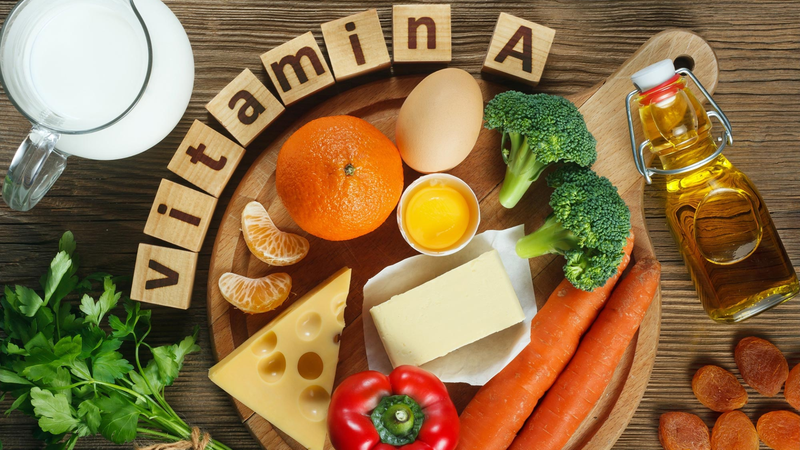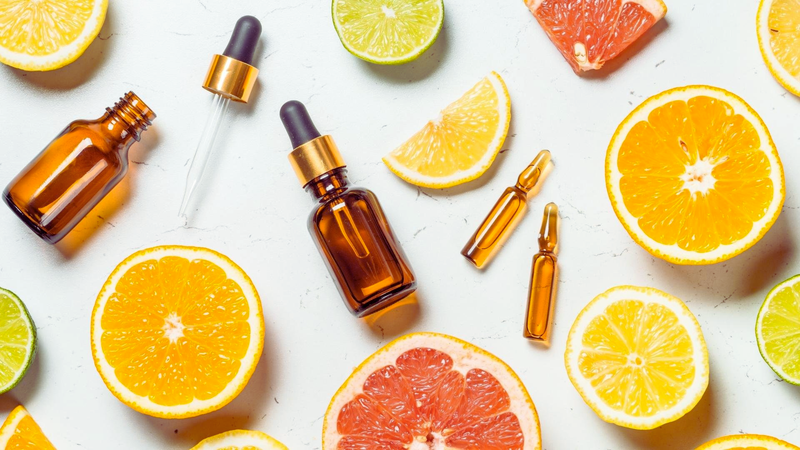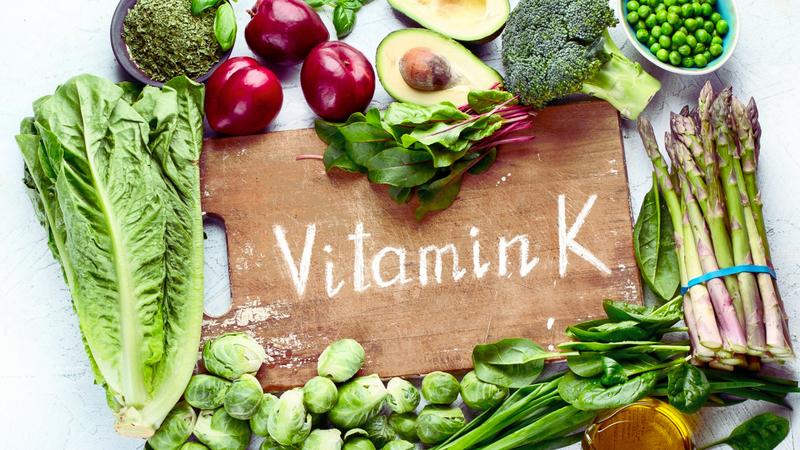Everyone knows that nutrition often affects the appearance of the skin. So what can we add to our body to have more beautiful skin? Let’s find out the 5 vitamins you need for healthy, glowing skin.
The skin is the largest organ in the body and acts as a barrier against pollutants, toxins, and harmful UV rays from the outside. It also helps regulate body temperature and plays an important role in immune function. Achieving healthy skin involves many different factors, including adopting a healthy lifestyle, following a proper skin care routine, and protecting from the sun. In addition, a diet rich in vitamins, antioxidants, macronutrients, and micronutrients for the skin plays an important role in maintaining skin health. Check out the 5 important vitamins for skin health in the article below.
Vitamin A
Vitamin A is one of the most important vitamin supplements for keeping your skin healthy. It helps all layers of the skin because it acts as an antioxidant, can prevent damage from sun exposure, and binds to receptors in skin cells to help strengthen the epidermis.
Vitamin A helps regulate the production of sebum, the oily substance that leads to acne when overproduced. It also has anti-inflammatory properties and promotes collagen production, which can help reduce the appearance of wrinkles. Without enough vitamin A, your skin can become dry, itchy, and acne-prone.

Vitamin A is an extremely important vitamin supplement for healthy skin.
Vitamin C
Vitamin C is one of the ingredients that brings many great benefits to the skin.
First, vitamin C is a powerful antioxidant, capable of fighting the negative effects of free radicals and environmental impacts. This helps protect the skin from the harmful effects of UV rays and pollution, reduces the risk of sunburn from the sun, and significantly limits aging.
In particular, vitamin C also promotes the production of collagen – a protein that supports the elasticity and smoothness of the skin. This helps to minimize the appearance of wrinkles and loss of elasticity of the skin as you age.
Finally, vitamin C can help fade dark spots caused by acne and at the same time improve the evenness of the skin color, giving you a brighter, smoother and more radiant skin.
Along with supplementing vitamin C from food and drinks, using skin care products containing vitamin C is also an effective way to take advantage of these great benefits for your skin.

Vitamin C is a powerful antioxidant.
Vitamin D
Vitamin D is produced in your body when your skin is exposed to sunlight, but too much vitamin D can lead to actinic keratosis, a skin condition that often requires medical attention. The vitamin plays an important role in creating an even skin tone, can help treat psoriasis, and keeps your bones healthy.
To get enough vitamin D for healthy skin, you can add more vitamin D to your diet by eating fortified foods like orange juice and yogurt, or eating foods that naturally contain the vitamin, like salmon and tuna. You can also get some sun exposure to encourage vitamin D production in your skin. However, this comes with the risk of sun damage, so you have to be careful when using this method. Always apply sunscreen before going out in the sun, avoid going out during peak hours (usually between 10am and 2pm), and limit your sun exposure to 10-15 minutes.

Our bodies make vitamin D from our skin when it is exposed directly to sunlight.
Vitamin E
Vitamin E is another antioxidant that works in the skin to absorb energy from UV rays, protecting the skin from sun damage that can lead to skin cancer, wrinkles, and fine lines. Vitamin E and vitamin C work together to strengthen the skin cell walls.
Normally, our bodies produce enough vitamin E through the oily substance in the pores of the skin called sebum. However, if you have dry skin, vitamin E can be applied topically, can be taken as a supplement, or you can eat more foods containing vitamin E (nuts) to help the skin retain more moisture.
Additionally, due to its antioxidant properties, topical vitamin E is used to treat various skin disorders including burns, scars, and wounds to help heal the skin and restore it to its normal texture.
Vitamin K
Vitamin K is one of the best vitamins for healthy skin because it is an essential vitamin in the body’s blood clotting process. Blood clotting is an important step in the healing of wounds and bruises. It is also known to help treat stretch marks, spider veins, scars, dark spots and dark circles under the eyes.
Vitamin K deficiency is quite rare, but to increase your daily intake of vitamin K, you can add more foods containing vitamin K to your diet. These foods include kale, spinach, cabbage, lettuce and green beans.

Vitamin K is found in foods such as kale, spinach, cabbage, lettuce, and green beans.
Being the largest organ in the body, you must pay attention to common skin problems and care for your skin. It needs a lot of care and treatment, especially if you are suffering from any skin conditions. Vitamins A, C, D, E and K are 5 very important skin-beautifying vitamins to include in your diet and skin care routine to keep your skin healthy and glowing.





